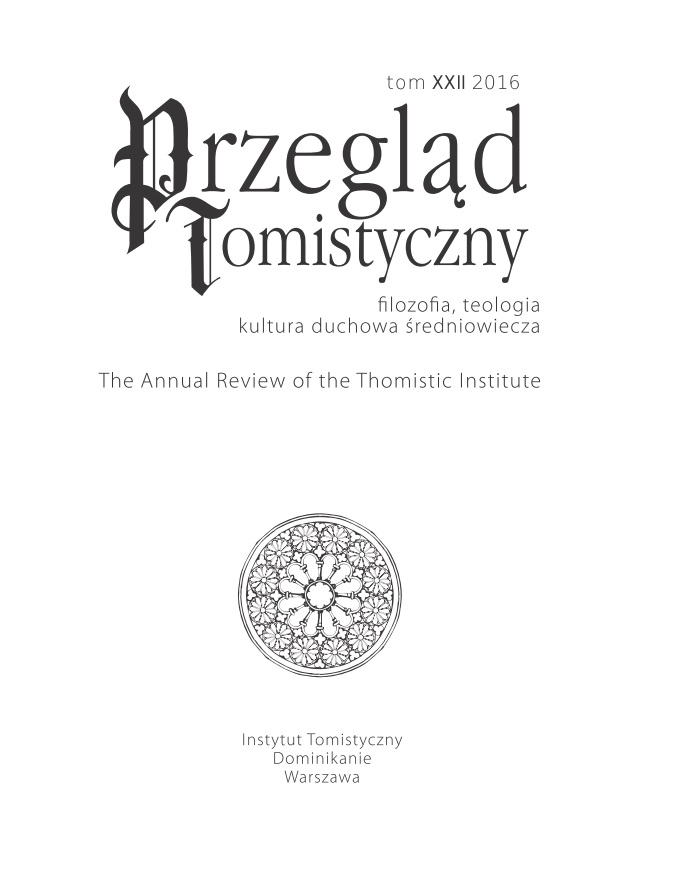Czy Akwinata stał się woluntarystą.
Is Aquinas a Voluntarist?
A Few Comments on an Ongoing Discussion
Author(s): Michał PaluchSubject(s): Christian Theology and Religion, Philosophy of Middle Ages
Published by: Instytut Tomistyczny
Keywords: Aquinas; the will; voluntarism; intellectualism; anthropology; Tomasz z Akwinu; wola; woluntaryzm; intelektualizm; antropologia
Summary/Abstract: The paper deals with the widely-discussed problem of the change in Aquinas’s interpretation of the relationship between the intellect and the will. The change may be located in his work around 1270, between the Prima Pars and the Prima Secundae/De malo 6. It comprises three main elements. (1) At the beginning, Thomas explains the role of the intellect in the act of liberum arbitrium by final causality and the role of the will by efficiency; after the change of his position, the role of the intellect is understood by formal causality and the role of the will by final causality. (2) After the change, the will is described as having the capacity to be a source of motion on its own (not only responding to the activity of the intellect). (3) It is the will and not the intellect, according to Aquinas’s later interpretation, that is set in motion by the first cause. The paper presents the discussion on the divergent interpretations of the above-mentioned evolution, begun by several famous texts by Otto Lottin in the 1920s and 1930s and followed up by a book by Yul Kim published in 2007. The new position adapted by Aquinas at the end of his career has been evaluated as a voluntaristic one, an intellectualistic one, or as some sort of middle position. Taking into account that (1) Thomas consistently understands the act of liberum arbitrium as the unique act of the intellect and the will operating together, (2) Aquinas’s philosophy of action is never prone to deterministic Aristotelianism and (3) for Aquinas, the first cause, always understood as transcendent, cannot be a danger to human freedom, it can therefore be concluded that the position adapted by Thomas after 1270 remains in substantial agreement with his former interpretation. The act of liberum arbitrium is rooted in the will. If one wants to judge Aquinas’s position according to this aspect, it should be labelled voluntarism. But the act of liberum arbitrium cannot be executed without the cooperation of the intellect; according to Aquinas it is never the result of some blind force. If one wants to focus on this aspect, one must describe Thomas’s solution as intellectualism. As mentioned above, the act of liberum arbitrium is the unique act of the intellect and the will operating together. If one wants to consider that aspect as the most important, one will probably be inclined to describe Aquinas’s position as a middle one between voluntarism and intellectualism. What is most important is that each of the above-mentioned descriptions of Aquinas’s position is the same before and after the change.
Journal: Przegląd Tomistyczny
- Issue Year: 2016
- Issue No: XXII
- Page Range: 313-329
- Page Count: 17
- Language: Polish

